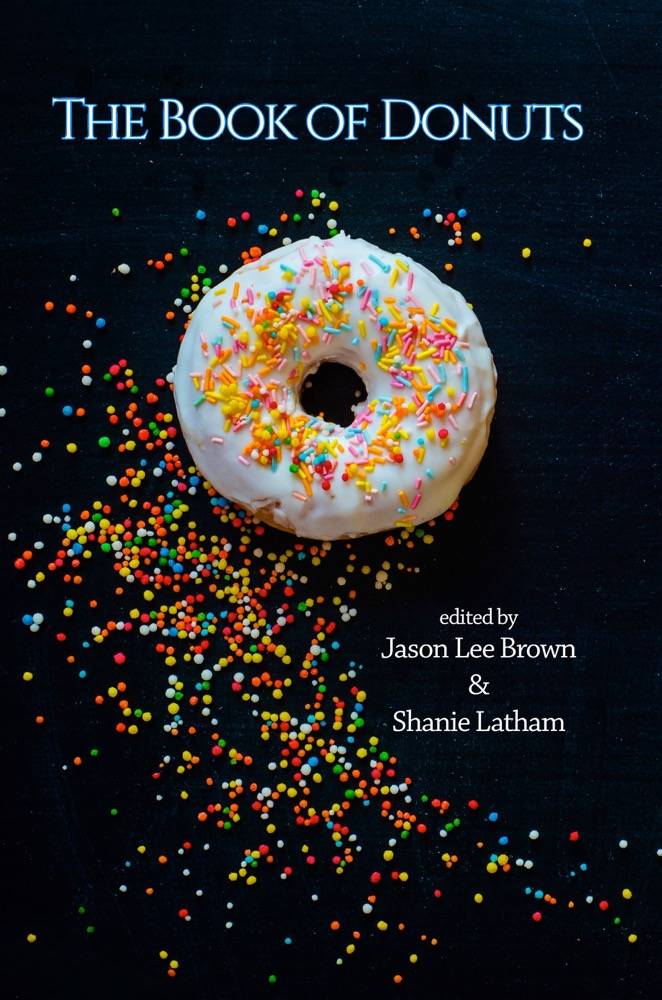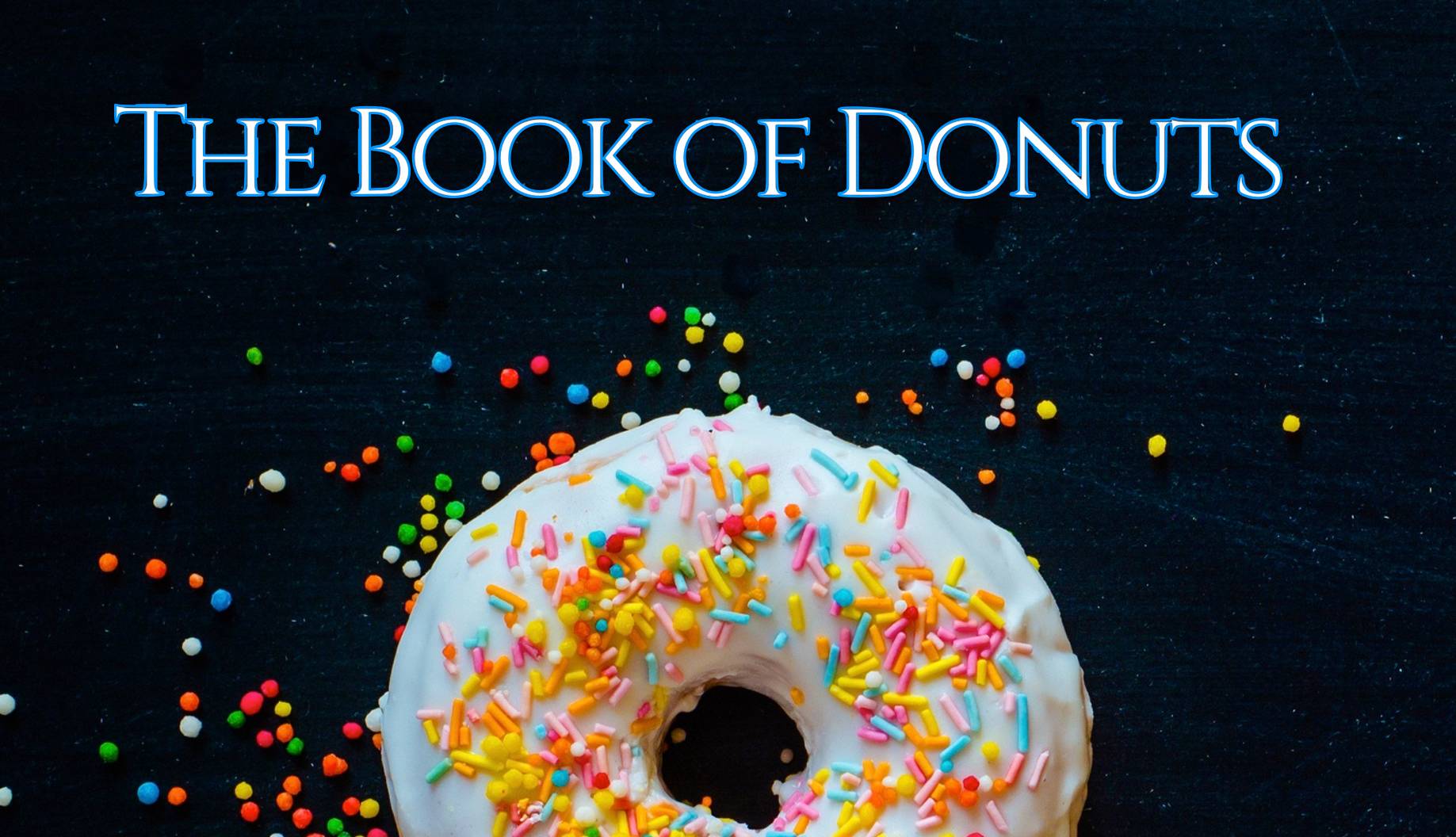I was never a huge fan of the donut, although it’s true that, until recently, most of the donuts in my life came in a Dunkin’ Donut or Entemanns’ box. I have recently been introduced to a vanilla cardamom donut made by Lucky Pierre Bakery that tastes like the best part of butter mixed with a little bit of a foreign country. It may have begun my very first craving for a donut. This doesn’t mean I haven’t been introduced to donut culture — I lived in Boston for a while and in places like Allston and Brighton, Massachusetts the Dunkin’ Donuts has the kind of loyalty that the Chicago Cubs inspire (to be fair the DD loyalty is as much about coffee as donuts).
But since reading, The Book of Donuts, a compilation of 54 poems by 51 authors, in which the common and uncommon donut is a central character to be revered, celebrated, pitied, I too have been mulling the donut.
Some of the poems see the donut as an antagonist, a foil against thin bodies, healthy lifestyles, and then there is the poem Rationalization by Betsey Cullen, who finds a way around that kind of castigation: “Loosen up/ Krispy Kreme rhymes/with dream. Go ahead. Wallow/in a carrot-cake donut, call it a vegetable.”
Others enter the donut shop itself. The poem, In Praise of Donut Workers, by Heather Lynne Davis takes on the divide of the grad student working her way through school in a temporary job next to a woman for whom this is a career, and Jim Daniels stops at a donut shop after a shift at a night factory job in Donuts, the Color Of : “I inhale the warm dough and coffee. I sit/on a round red stool. /People nod to each other/in this Church of Day Just Begun and Day Just Ending.”

Some poets are more philosophical about the essence of the donut. Does a donut have to have a hole? No. That leaves out the Boston Crème, the Jelly Donut, and all sorts of cultural variations on the donut, which make an appearance here: Beignets, the donut drops, the donut holes, conjured from the missing dough. But let’s be frank — it is the missing, the emptiness that of that hole that makes up the shape of the traditional donut. Brent Pallas takes on that empty hole in a literal shape poem Donut Hole, and Faisal Mohyuddin in Afterwards takes on the metaphysics of the hole: “I promise next time I’ll buy only one, but know in my heart/that everything about donuts is a lie, that the best part/is their missing center, their resemblance to the me/I’ve become.”
These poems are so specific about the context, the memories of encountering donuts that you might not recognize them, but the poem Elegy For The Last Donut by Nancy Susanna Breen contains a scenario almost everyone will encounter at some point in their life — the last donut in the box that goes stale because no one wants to be the person to eat the last donut: “If frosted, the coating hardens, then flakes/like whitewash from the walls of an aged shed.”
A few poems take the linguistic path — Meg Reynold’s Six Visions of the Donut incorporates pun: “Donut talk to me. Donut forget/to smile/Donut judge me./Donut mess with Texas.” Local poet Matthew Murrey thinks back to a night in Minneapolis doing donuts in a parking lot with his son in a poem entitled simply Donuts. The donut-do hair style makes its way into a poem by Anjela Villarreal Ratliff in a poem called Connecting Dots and Donuts.
Still in most of the poems, the ingredients of yeast, sugar, eggs, flour, and shortening fried in oil make their way into physical objects that can be eaten or given up as in Emily Rose Cole’s poem, Lent.
Like in any anthology there are stronger poems and, like in any good anthology, you and I might not agree which those are. Perhaps we can agree on the importance of looking closely at the ordinary things in our lives, at our differing viewpoints on even that, and how poetry manages to give us another view through a glass where there are so many different choices. Some with sprinkles.
The Book of Donuts was edited by Jason Lee Brown & Shanie Latham. Brown is local to Champaign-Urbana. It was published by Terrapin Books this year.








